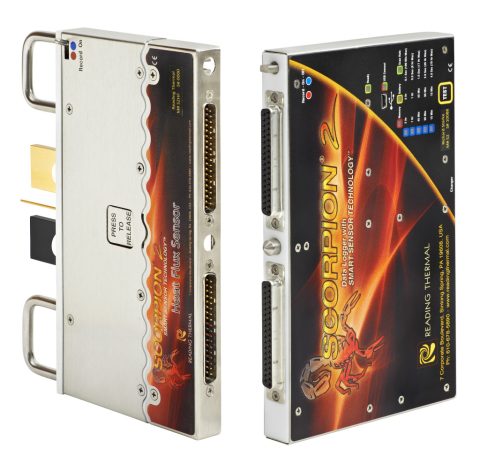A temperature data logger for bakery processes can ensure optimal energy efficiency and is crucial for reducing operational costs and ensuring sustainability. Temperature data loggers from Reading Thermal play a vital role in achieving these goals. By providing precise and continuous monitoring of oven temperatures, data loggers help bakers optimize their baking processes, leading to significant energy savings and cost reductions.
Understanding Temperature Data Loggers
Temperature data loggers are electronic devices that record temperature data over time. They consist of sensors, a microprocessor, and storage capabilities. Data loggers enable real-time monitoring and data analysis. These devices monitor oven temperatures in commercial bakeries, ensuring the baking environment remains within the desired range.
Some of the key benefits include:
- Accurate temperature monitoring: Data loggers provide precise and continuous temperature measurements, allowing bakers to maintain optimal baking conditions. Accurate monitoring ensures that ovens operate at the correct temperatures, preventing energy wastage caused by overheating or underheating.
- Real-time data analysis: Modern data loggers often come with real-time monitoring capabilities, enabling bakers to observe temperature fluctuations as they occur. This real-time data allows for immediate adjustments, reducing the time ovens spend at inefficient temperatures and conserving energy.
- Optimized baking processes: By analyzing the temperature data collected over time, bakers can identify trends and patterns in their baking processes. This information can be used to optimize oven settings, baking times, and temperature profiles, leading to more efficient energy use.
Ways Data Loggers Help Reduce Energy Consumption and Costs
One primary way data loggers help reduce energy consumption is by identifying inefficiencies in the baking process. Continuous temperature monitoring can reveal discrepancies between set and actual oven temperatures, indicating potential oven calibration or insulation issues. By addressing these inefficiencies, bakeries can ensure that ovens operate more efficiently, reducing energy waste.
These are a few other ways our data loggers can increase your operation’s energy efficiency.
- Preventing overbaking: Overbaking is a common issue that wastes energy and results in product waste. Data loggers help prevent overbaking by providing precise control over baking times and temperatures. Bakers can set alarms for when temperatures exceed or drop below specified thresholds, ensuring that baked goods are cooked perfectly without unnecessary energy usage.
- Reducing warm-up times: Many bakeries face the challenge of long warm-up times for their ovens, leading to significant energy consumption. Data loggers can monitor warm-up times and help optimize the process, ensuring that ovens reach the desired temperature more quickly and efficiently. This reduction in warm-up times translates to lower energy consumption and cost savings.
- Enhanced maintenance scheduling: Regular oven maintenance is crucial for maintaining energy efficiency. Data loggers provide valuable insights into oven performance, helping bakers schedule maintenance more effectively. By identifying when an oven is not performing optimally, bakeries can conduct timely maintenance, preventing energy wastage due to malfunctioning equipment.
- Optimizing production schedules: Data loggers can also help maximize production schedules by providing accurate data on oven usage. By analyzing this data, bakers can determine the most energy-efficient times to run their ovens, aligning production schedules with periods of lower energy demand or cooler ambient temperatures. This strategic scheduling can lead to significant energy savings.
Learn more about the benefits of a Reading Thermal temperature data logger for bakery processes using our online form or by calling 610-678-5890.

